May 26, 2025 | 23:57 GMT +7
May 26, 2025 | 23:57 GMT +7
Hotline: 0913.378.918
May 26, 2025 | 23:57 GMT +7
Hotline: 0913.378.918
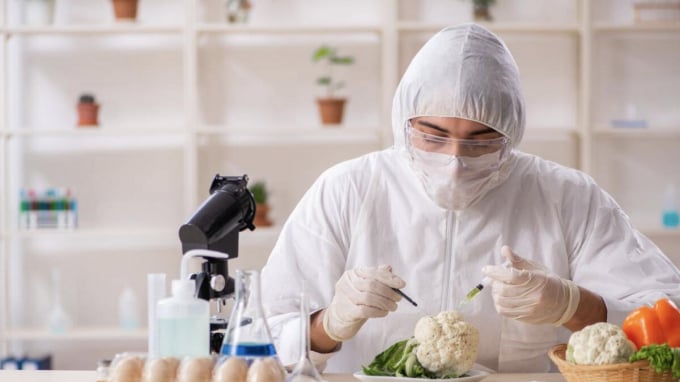
Dragon fruit and spice vegetables of Vietnamese origin are now strictly controlled in the EU.
On June 20, the association sent the dispatch No. 31/VP-HHRQVN/22 to the Vietnam Sanitary and Phytosanitary Notification Authority and Enquiry Point (Vietnam SPS Office), proposing the agency to work again with the European Union (EU) to reduce the frequency of testing dragon fruit and spice vegetables before exporting them to the market.
The move came after the association realized that the frequency of testing dragon fruit and spice vegetables is too high.Currently, the rate of dragon fruit to be checked for Maximum Residue levels (MRL) is 20 per cent and the rate of spice vegetables to be checked for MRL is 50 per cent, according to an announcement dated June 13 of the EU.
"The rate is too high for Vietnamese vegetables and fruits because after taking samples for inspection, the goods cannot be used, which means we have lost a lot of money, consisting of the value of the goods and the current very-high logistics costs", the dispatch said.
According to the association, keeping the inspection frequency of dragon fruit at 20 per cent and spice vegetables at 50 per cent makes the profits of businesses being sharply reduced.At the same time, the inspection took more than four days to meet the requirement, causing the quality of the goods to be decreased before selling to the market.
Dang Phuc Nguyen, General Secretary of the association, said that the association is asking the Vietnam SPS Office to discuss with the EU to reduce the testing rate to about 3 per cent.Another solution is that the EU can designate an inspection agency in Vietnam to help check the quality of the goods before exporting to the EU and recognize the results of the agency, he said.
"We want to reduce the inspection rate in the EU, because it both takes time and affects to Vietnamese businesses. We hope that the EU can remove this bottleneck for Vietnamese fruit and vegetable,” he said.
A number of EU inspection agencies are currently operating well in Vietnam such as Eurofins, Bureau Veritas.
The association said that the laboratories of the EU inspection agencies are modern and capable of conducting MRL test as required by the EU Customs.
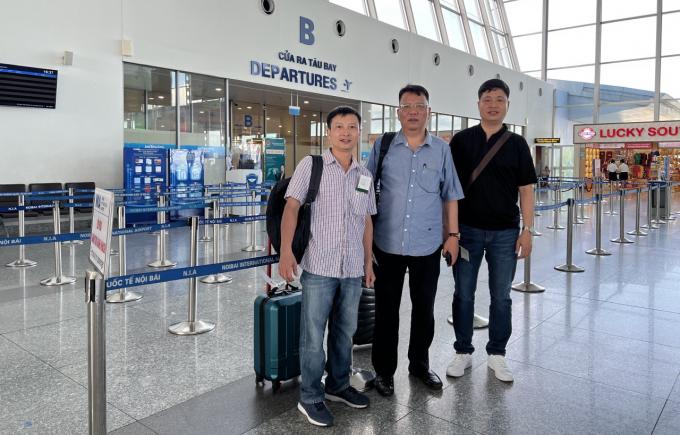
Ngo Xuan Nam (centre), Deputy Director of Vietnam SPS Office and head of Vietnam's Delegation at the 83rd session of the SPS-WTO Committee with his colleagues on their way to participate the session that is taken place between June 22 and 24 in Geneva, Switzerland.
Also related to the upcoming meeting of the Sanitary and phytosanitary measures – World Trade Organization (SPS-WTO) Committee, the Vietnam Food Administration under the Ministry of Health requested the Vietnam SPS Office to clarify with the EU side about the definitions for each product group as well as the test method for each sample in two notices of G/SPS/N/EU/558 (notice 558) and G/SPS/N/EU/566 (notice 566).
In the notice 558, the EU drafted a number of regulations related to the presence of Ethylene oxide in food additives. This is a substance used to disinfect, preserve items that need to be stored for a long time without worrying about mold, and it is often used in the processing of instant foods.
The notice 566 drafts lowering the current maximum level for inorganic arsenic in rice (polished or white rice), and establishing a new maximum level for inorganic arsenic in rice flour, rice-based beverages, fish, crustaceans, bivalve mollusks, food for infants and young children, fruit juices, fruit juice concentrates, nectar and salt.
From Geneva, Switzerland, Ngo Xuan Nam, Deputy Director of Vietnam SPS Office, head of Vietnam's Delegation at the 83rd session of the SPS-WTO Committee said that the office will ask the EU to clarify the criteria of the inspection frequency for a number of exported agricultural products and foodstuffs as well as come to an agreement on solutions to reduce the frequency of inspection, help to ensure import and export activities of people and businesses.khẩu".
On June 21, the Vietnamese delegation held a bilateral meeting with the Chinese side. Some of the working contents include establishing a direct communication line between the Vietnam SPS Office and the General Administration of Customs of China; supplementing HS and CIQ codes for businesses exporting to China, meeting the Order 248.
Translated by Thu Hang
/2025/05/26/3422-3-102748_432.jpg)
(VAN) Prime Minister Pham Minh Chinh has been honored as the Distinguished ASEAN Leader at the ASEAN Leadership and Partnership Forum (ALPF) 2025 held in Malaysia, affirming Vietnam’s role and reputation.
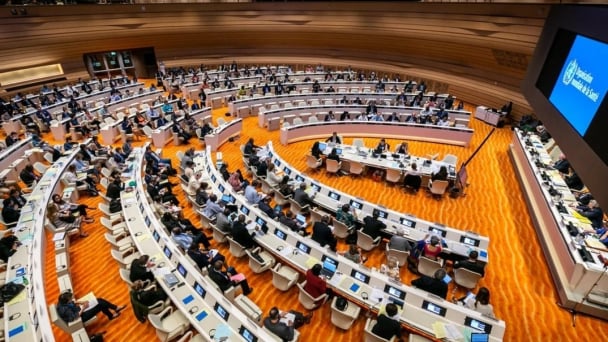
(VAN) At WHA78, with health placed at the heart of the global climate storm, Viet Nam enters a new commitment to protect communities from increasingly severe risks.
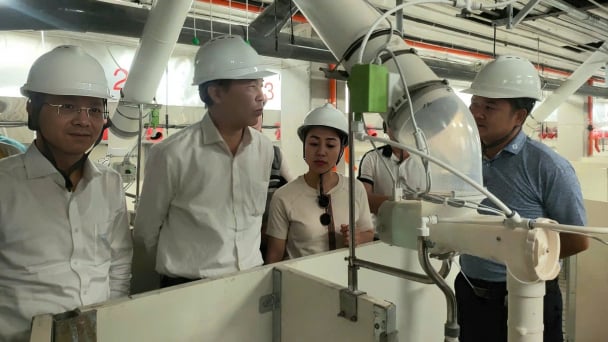
(VAN) Despite investment costs being 1.5 to 1.8 times higher than conventional methods, multi-story pig farming demonstrates outstanding effectiveness, increasing land-use efficiency by 4 to 10 times.
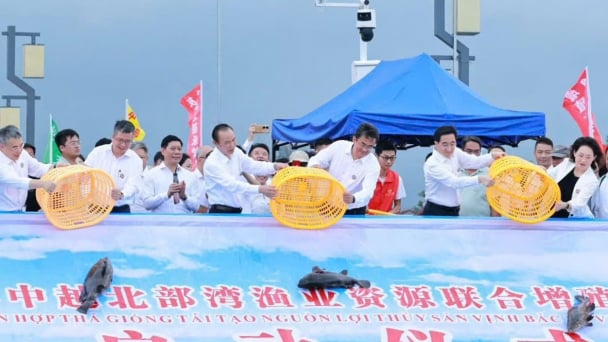
(VAN) Deputy Minister of Agriculture and Environment Phung Duc Tien leads a working delegation to participate in several key activities in China aimed at promoting agricultural and fisheries cooperation.
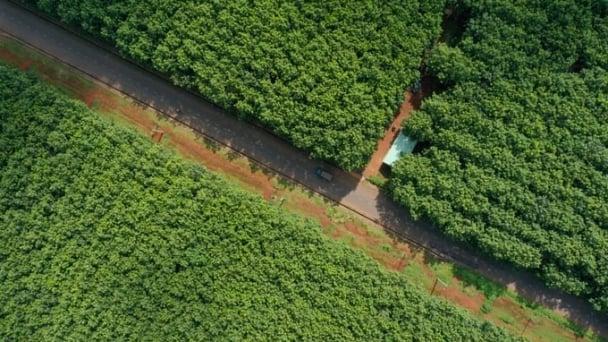
(VAN) The European Commission has just released a list of ‘low-risk’ countries for deforestation, which includes Vietnam.
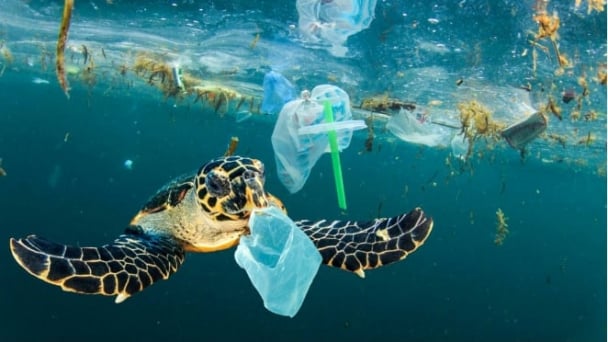
(VAN) The convenience of single-use plastics is leaving lasting consequences for the oceans.
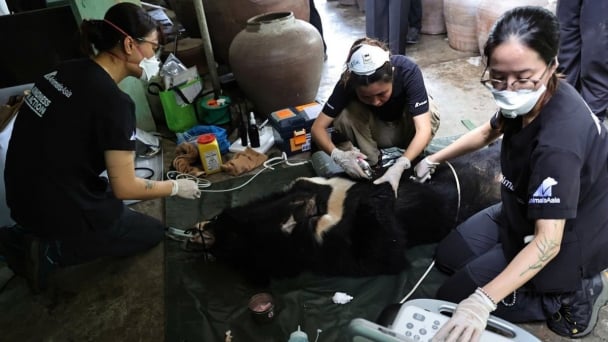
(VAN) On the morning of May 23, in Nghe An, the Animals Asia Foundation successfully rescued a Tibetan bear and transferred it to the Vietnam Bear Rescue Centre located in Bach Ma National Park.